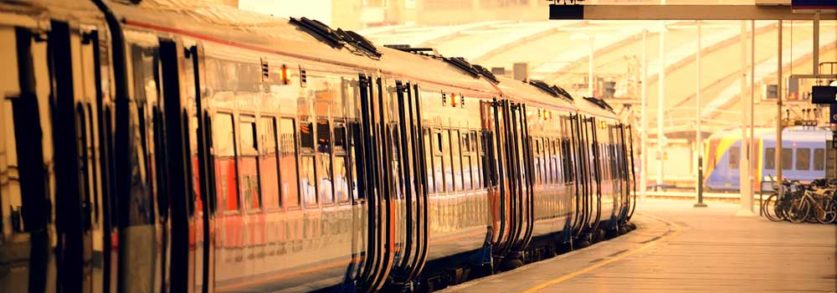
Researchers at Imperial College London are collaborating with non-profit renewables action group 10:10 to work on developing trackside solar panels to power trains across the UK.
The aim of the Renewable Traction Power project is to be able to power trains with solar panels directly, without the energy having to go through the grid.
Network Rail is already working on electrifying the train lines across the UK. This will reduce the transport network’s reliance on fossil fuels both in the immediate sense (in that they will not be powered by diesel or petrol), but also ever more so over time as the UK’s electricity mix takes a turn for the greener.
However, as writers at Imperial explain, the electricity grid in many rural areas is either at or close to its limit in terms of “integrating distributed energy generation and supplying power to train companies”. If this new research project is successful, the middle man can be cut out, so to speak, and the rail network becomes effectively a renewable closed system as far as electricity use is concerned.
The project’s leader, 10:10’s Leo Murray, said: “What is particularly galling is that peak generation from solar and peak demand from the trains more or less match but we can’t connect the two. I actually believe this represents a real opportunity for some innovative thinking.”
Further, as ICL’s Professor Tim Green explained: “Many railway lines run through areas with great potential for solar power but where existing electricity networks are hard to access.”
The idea represents an important paradigm shift in national electricity supply, moving away from a single centralised grid based system. We have already seen signs of a similar trend in the development of responsive smart grids, but if the ideas that ICL researchers and 10:10 are investigating come to fruition, they will take it a step further. Should it work in the UK, there is potential for “commercial applications on electrified rail networks all over the world”, the university explained, adding that “it would also open up thousands of new sites to small and medium scale renewable developments by removing the need to connect to the grid.”
In another, separate development related to the decarbonisation of the railways, it was revealed this week that Dutch national railway company NS has achieved its target of having 100% of trains in the country powered exclusively by wind generated electricity. They had originally planned to reach the target by January next year, but rapid expansion of the country’s fleet of wind farms allowed them to achieve their goal much earlier.




